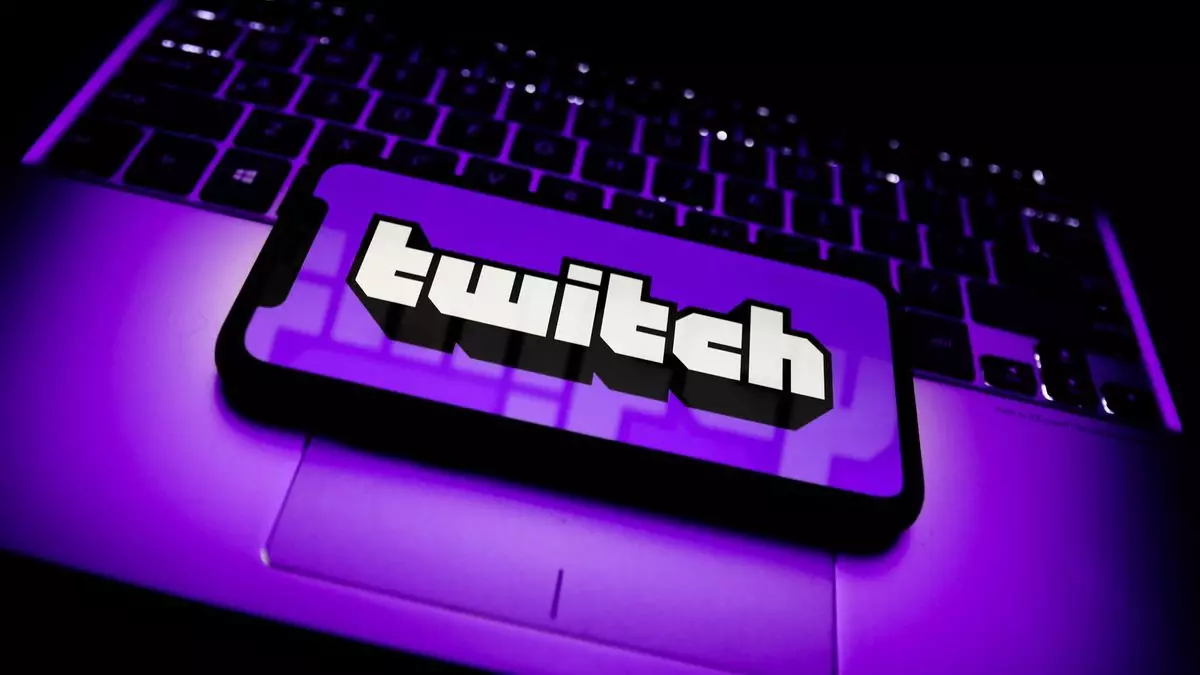In an ever-evolving digital landscape, platforms like Twitch find themselves grappling with the complexities of content moderation, particularly concerning politically charged topics and sensitive social issues. Recently, Twitch announced a new content classification policy aimed at streamers addressing what the platform categorized as “politics and sensitive social issues,” but the policy faced immediate backlash and necessitated revisions. This article explores Twitch’s policy changes, the critique from its user base, and the implications for content creators, particularly those from marginalized communities.
Twitch’s original content classification label (CCL) aimed to provide transparency for viewers about the nature of streams discussing politics or sensitive social topics. However, this well-intentioned plan quickly drew criticism from various streamer communities. LGBTQ+ creators voiced their dissatisfaction, pointing out that their mere existence and discussion of personal identities were suddenly subject to political labeling. This implied a dangerous precedent where expressing one’s identity became entangled with the political, leading to fears of financial repercussions from advertisers who might shy away from labeled content.
The backlash gained momentum following a series of incidents on the platform that highlighted issues of racism, Islamophobia, and the mishandling of sensitive dialogue. Following these events, Twitch CEO Dan Clancy pledged to foster a zero-tolerance stance towards all forms of hate speech. The contradiction between the platform’s commitment to combating hate and the execution of a politically charged classification policy raised eyebrows, especially among LGBTQ+ communities feeling targeted.
In an effort to quell dissatisfaction, Twitch announced updates to its CCL that aimed to clarify the need for labeling streams. The modified policy indicated that streamers discussing their “lived experiences” would not require a label, which was a noteworthy concession amid earlier guidelines that conflated personal dialogue with political discourse. However, the revisions still required content labels if discussions were deemed “polarizing or inflammatory,” leading to further confusion about the subjective nature of such terms.
Critics argued that removing explicit references to LGBTQ+ and reproductive rights while replacing them with ambiguous criteria surrounding “polarizing” discussions does not significantly alleviate concerns. For marginalized groups—particularly within the LGBTQ+ community—this peculiar approach feels like an offhand way of silencing vital conversations under the guise of moderation.
One of the core issues with Twitch’s policy is the inherently subjective nature of differentiating between personal experience and political commentary. A streamer advocating for their right to healthcare or discussing their experiences with identity can be construed as either personal or political, depending on who is observing. Conversations about individual rights, such as reproductive choice or transgender treatments, often attract polarized opinions, making it challenging to delineate where personal narratives end and political discourse begins.
This ambiguity raises pertinent questions: who sets the threshold for what constitutes an “inflammatory” discussion, and how can marginalized voices ensure they are heard without fear of retribution from those who might not share their views? The answers remain elusive, as highlighted by community feedback expressed through influential platforms like Twitch’s UserVoice forum.
Community feedback has played a significant role in Twitch’s recent policy evolution. With thousands of responses calling for streamlining or even abolishing the original guidelines, it is clear that many users are not satisfied with mere clarifications. Critics are pressing for systemic changes to ensure that marginalized voices are not silenced under broad policy frameworks that exhibit a lack of understanding of their lived realities.
Twitch’s efforts to navigate these waters come at a time when monitoring speech about contentious issues—like the ongoing discourse surrounding Israel and Palestine—takes center stage. Streamers who belong to minority groups see potential for their experiences to be invalidated through sweeping policies that do not account for the nuances essential to understanding personal narratives.
While Twitch’s attempts at revising its content classification framework represent a step toward greater inclusivity, substantial work remains. The intersection of personal experience and political dialogue is fraught with challenges, particularly for marginalized communities seeking visibility and understanding within predominantly white, male spheres. Balancing moderation with the preservation of safe spaces for all voices on Twitch necessitates ongoing dialogue and a commitment to creating inclusive policies that reflect the varied experiences of its diverse content creators. As this story unfolds, it will be crucial for Twitch to heed community voices and ensure that its platform remains a space where all users can express themselves freely and authentically.


Leave a Reply